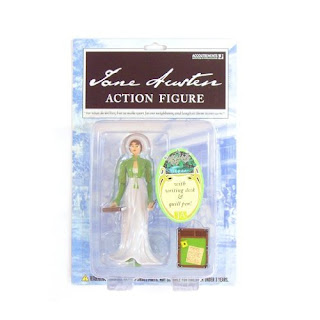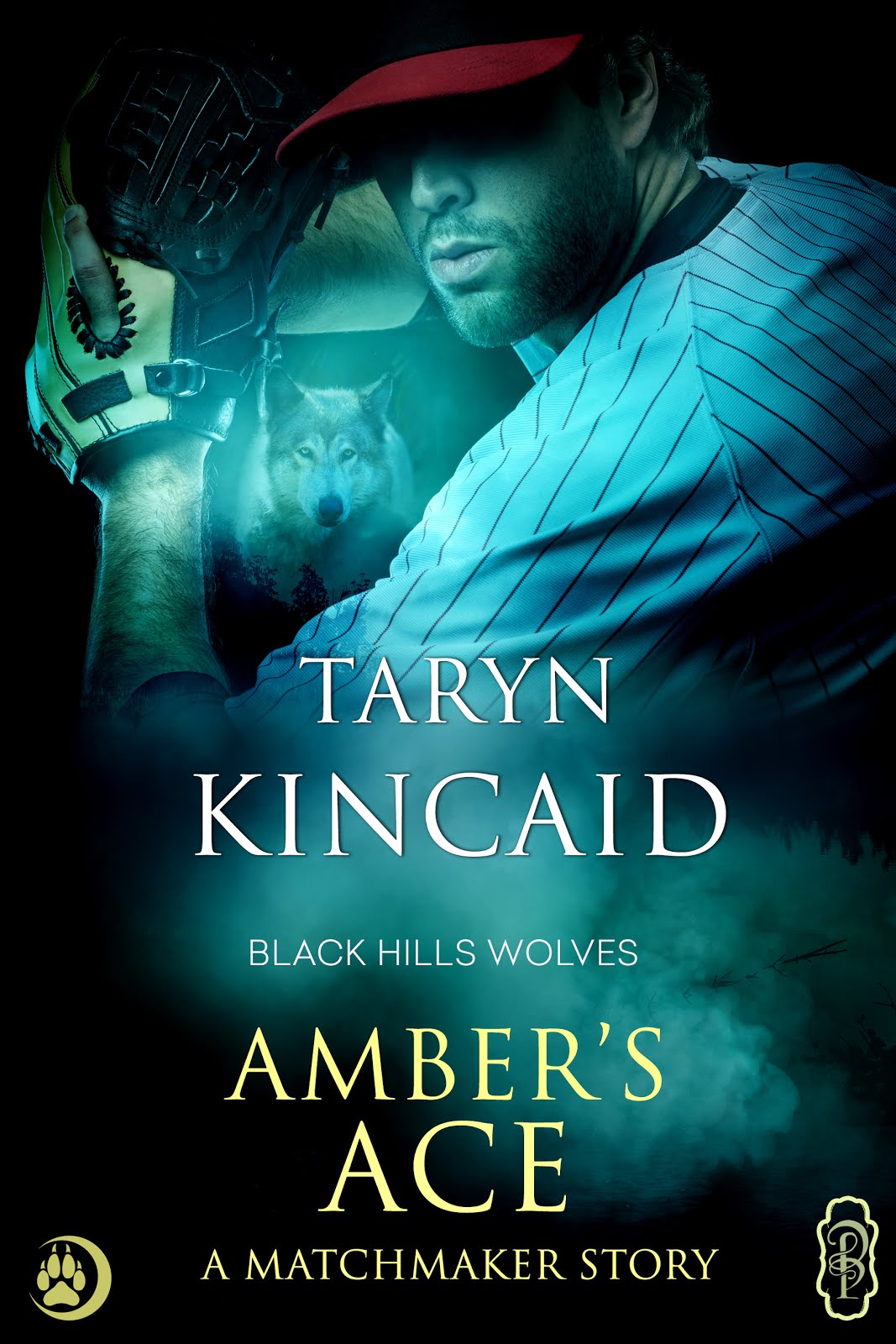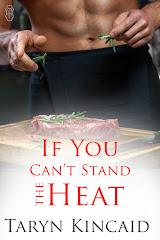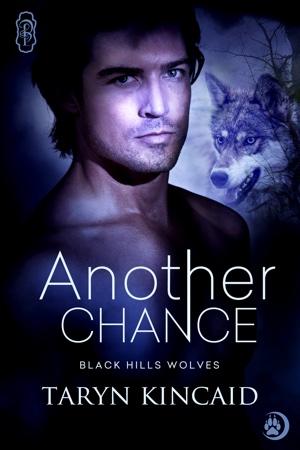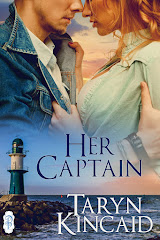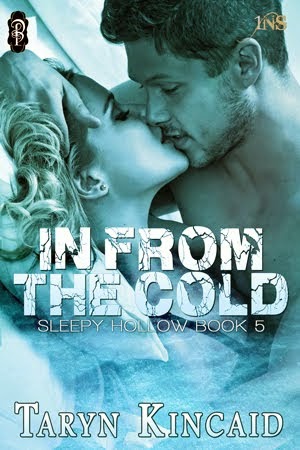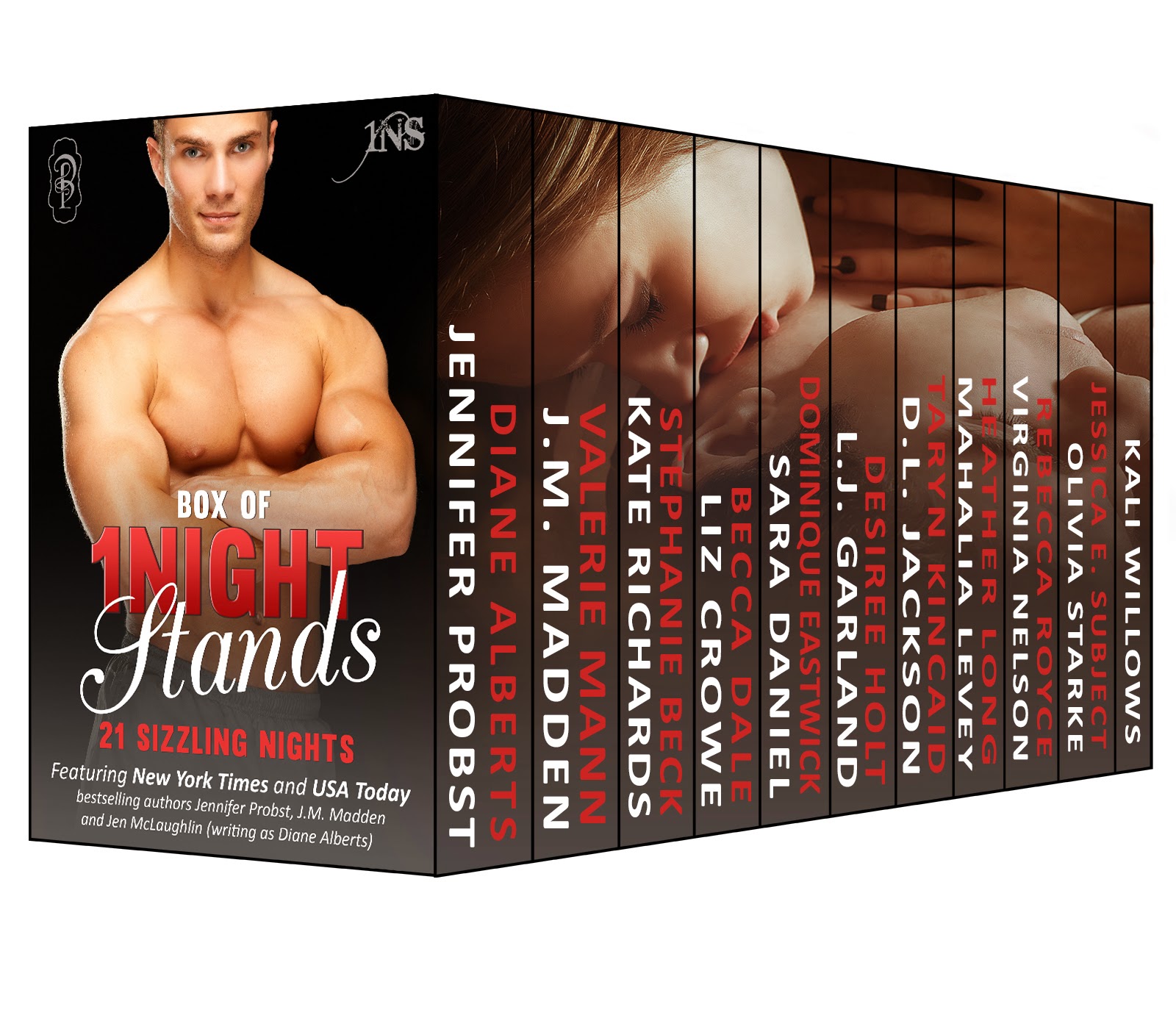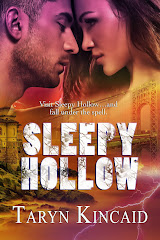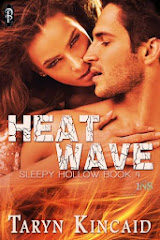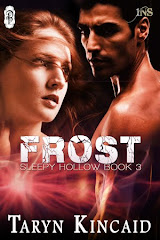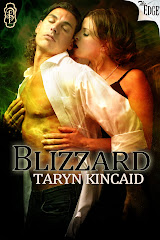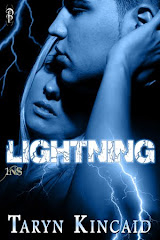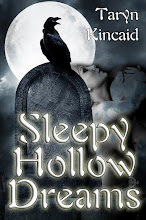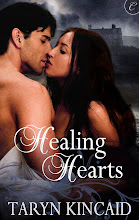This one's for the unpubs.
Polish up those manuscripts you've been futzing around with, add some healthy dollops of sizzle and steam and whip them into, er, submission by September.
That's when Kensington's Brava imprint will launch its Writing with the Stars contest in conjunction with Romantic Times. All the details will be in the June issue of RT.
But Kensington's Alicia Condon, Editorial Director for Brava, offered a sneak peak today on the Brava Authors blog. After the submissions are in, the editors will select ten finalists and pair them with established Brava stars for a series of challenges--including such things as opening hooks, hot heroes and blistering love scenes. Brava mentors and romance celebrity judges will comment on the results of the challenges each month in the RT Book Reviews section. Readers and fans vote.
You know, kind of like American Idol and its progeny.
Or, to be more accurate, like Dorchester's American Title competition. (Probably no coincidence that Alicia Condon was at Dorchester for 23 years before moving to Kensington to fill the position left vacant by the death of Kate Duffy.)
We'll likely have to wait until June for the complete rules.
Here are a few tips that might get you started. Brava was the brainstorm of Kate Duffy, who envisioned the line this way: "First and foremost, these books are romances--so they combine deep emotional attachment with sexual love and desire..."
According to the 2004 submission guidelines--the latest I could find that were specifically for Brava, rather than all the Kensington imprints--manuscripts should be up to 100,000 words, written in third person. The point of view can be from either or both the hero and heroine's perspective and the settings can be "limitless."
I love that word. Limitless. So fraught with possibility.
In September, while still with Dorchester, Alicia Condon (who has also worked at Bantam and Silhouette) gave an interview in which she said she was "very excited about fantasy romance" but hadn't seen too many submissions. At that point, she was also looking for "a fresh fairy godmother story."
So go limitless. And exercise your "magnificent voice."
And here's a little tidbit (from RT's Read Smarter on Twitter) for you pubs. Grand Central's Forever imprint is expanding:
"Grand Central Publishing, parent company to the romance imprint Forever, announced yesterday that it will be expanding the line's offerings from 36 book a year to 48 titles a year beginning in 2011. This means there will be more books you love, from established Grand Central authors like Elizabeth Hoyt, Larissa Ione and Amanda Scott as well as books from new authors.
"As part of their move, several editors have been promoted. Selina McLemore is now Forever's senior editor and Alex Logan has been promoted to associate editor. Amy Pierpont remains the editorial director of Forever and oversees the line."
Friday, March 26, 2010
Thursday, March 25, 2010
RITA/Golden Heart
Big congrats to all the RITA and Golden Heart finalists announced today by the Romance Writers of America!
And big hugs to anyone who might need one.
And to those of us with no dog in the hunt this year: Let's stop dilly-dallying!
Tuesday, March 23, 2010
Synopsis Hell
Great blog post on the rigors of synopsis writing by romantic suspense author Roxanne St. Claire over at the MurderSheWrites blog today.
I like her posts on writing as much as I like her books!
And here's Shiloh Walker yesterday on the same subject: "On proposals, synopsis…selling…with, without… O_O."
I like her posts on writing as much as I like her books!
And here's Shiloh Walker yesterday on the same subject: "On proposals, synopsis…selling…with, without… O_O."
Saturday, March 20, 2010
Jane Austen Runs with the Bulls
Jane Austen is an action figure.
Yes, you heard right.
But wait. Miss Jane is not out there all by her lonesome. Oh, no. Amaze your friends. Collect them all.
The pantheon of "literary action figures" includes Oscar Wilde, Edgar Allan Poe and Shakespeare. Head shrinkers are represented by Freud and Carl Jung. Atom smashers by Einstein.
Here's Edgar:
Please note that Edgar comes complete with a raven on his shoulder. Possibly "nevermore" is sold separately.
And here's Oscar:
Oscar, dressed to party hardy, is dashingly accessorized with a walking stick. According to The Writer's Store, this is apt since Mr. Wilde was known, not only for his "comedic plays" and "quick wit," but also for his "eccentric dress." Presumably the removable cane will allow Oscar to stab you in the front, rather than the back, as true friends do. Another of my favorite Oscar quotes: "It is absurd to divide people into good and bad. People are either charming or tedious."
Freud is holding something in his hand. Can't tell from the picture, though, whether the object is just a cigar.
But perhaps my favorite is Ernest Hemingway:
Not only does Papa come complete with "typewriter and shotgun" but he also appears to be wearing a Hemingway T-shirt and leaning on a saber. The promotional copy says that "a child can role play, pretending to roam in Africa, fish in Cuba, hunt in Michigan, and write the great American Novel."
I figured if there was a Hemingway action figure, there should be one for F. Scott Fitzgerald. Perhaps sitting drunk at a Paris cafe. Or dancing in a New York City fountain with crazy Zelda. But alas. The author of The Great Gatsby apparently only rates a finger puppet:
But he's in good company. James Joyce has one too.

Yes, you heard right.
Ms. Jane comes complete with "writing desk and quill."
If this doesn't offend your sense and sensibilities, you can pretend to have a clueless Emma match up Ken and Barbie and send them off to the prom.
Personally, I think this is replete with possibilities and a lot more fun than G.I. Joe.
Personally, I think this is replete with possibilities and a lot more fun than G.I. Joe.
Let your imagination run wild.
The pantheon of "literary action figures" includes Oscar Wilde, Edgar Allan Poe and Shakespeare. Head shrinkers are represented by Freud and Carl Jung. Atom smashers by Einstein.
Here's Edgar:
Please note that Edgar comes complete with a raven on his shoulder. Possibly "nevermore" is sold separately.
And here's Oscar:
Oscar, dressed to party hardy, is dashingly accessorized with a walking stick. According to The Writer's Store, this is apt since Mr. Wilde was known, not only for his "comedic plays" and "quick wit," but also for his "eccentric dress." Presumably the removable cane will allow Oscar to stab you in the front, rather than the back, as true friends do. Another of my favorite Oscar quotes: "It is absurd to divide people into good and bad. People are either charming or tedious."
Freud is holding something in his hand. Can't tell from the picture, though, whether the object is just a cigar.
But perhaps my favorite is Ernest Hemingway:
Not only does Papa come complete with "typewriter and shotgun" but he also appears to be wearing a Hemingway T-shirt and leaning on a saber. The promotional copy says that "a child can role play, pretending to roam in Africa, fish in Cuba, hunt in Michigan, and write the great American Novel."
I figured if there was a Hemingway action figure, there should be one for F. Scott Fitzgerald. Perhaps sitting drunk at a Paris cafe. Or dancing in a New York City fountain with crazy Zelda. But alas. The author of The Great Gatsby apparently only rates a finger puppet:
But he's in good company. James Joyce has one too.
So do Hemingway and Mark Twain.

Four years of college have come down to this. It's all flashing before my eyes.
Friday, March 19, 2010
Pay It Extra
I love words. All shapes. All sizes. All colors.
I was about to say "all combos"--but there are word combinations that clang in my head like the Toonerville Trolley when I read them mashed together.
But I do love portmanteau words, a phrase coined by Humpty Dumpty in Lewis Carroll's Through the Looking Glass.
 Here's Humpty, explaining to Alice the meaning of slithy toves in Jabberwocky:
Here's Humpty, explaining to Alice the meaning of slithy toves in Jabberwocky:
"Well, 'slithy' means 'lithe and slimy.' 'Lithe' is the same as 'active.' You see it's like a portmanteau--there are two meanings packed up into one word."
 The eggman selected well: "When I use a word," Humpty said, in a rather scornful tone, "it means just what I choose it to mean--neither more nor less."
The eggman selected well: "When I use a word," Humpty said, in a rather scornful tone, "it means just what I choose it to mean--neither more nor less."
 (See Chaucer, Geoffrey: "Here bygynneth the Book of the Tales of Caunterbury." I don't know about you, but "begins" works a lot better for me. Oh, here's a good one: "To ferne halwes, kowthe in sondre londes"--which may or may not mean 'to distant shrines known in sundry lands'. What can I say? It's been awhile.)
(See Chaucer, Geoffrey: "Here bygynneth the Book of the Tales of Caunterbury." I don't know about you, but "begins" works a lot better for me. Oh, here's a good one: "To ferne halwes, kowthe in sondre londes"--which may or may not mean 'to distant shrines known in sundry lands'. What can I say? It's been awhile.)
Yes, yes, I digress again. I do note in passing, though, that none of the sites offering up the alleged Churchill quote bother to attribute it to any particular speech or piece of writing, setting off all my cynical internal-reporter alarms. And still the thing is repeated again and again on every writing blog in the universe. Including this one.
Short words are great. They have their purpose. So do long ones.
I mean, sometimes "keen" or "howl" works best. But sometimes to get that whole Middle East flavor of prostrate, throat-warbling grief, you just really need "ululation."
(I'm only semi-kidding.)
It does help to know your audience and for whom you're writing, though. (Or, as our pal Winston might say about that last one: "This is the sort of arrant pedantry up with which I shall not put." Another of those oft-quoted but never sourced nuggets that can be found in myriad permutations all over the web. Ooooh. I like those jaw-breakers. But I like "many versions" better, I think.)
Still digressing, I know.
This all came about because a tweet of readers, writers, editors and reviewers were tossing out some of their favorite $1,000 words on Twitter today.
Which caused me to google "unusual words."
Which I now share with you: Unusual Words
Here's a good one: Basorexia. An overwhelming desire to neck or kiss.
Oh, come on.
It was either that or recite "Jabberwocky."
I was about to say "all combos"--but there are word combinations that clang in my head like the Toonerville Trolley when I read them mashed together.
But I do love portmanteau words, a phrase coined by Humpty Dumpty in Lewis Carroll's Through the Looking Glass.

"Well, 'slithy' means 'lithe and slimy.' 'Lithe' is the same as 'active.' You see it's like a portmanteau--there are two meanings packed up into one word."
 The eggman selected well: "When I use a word," Humpty said, in a rather scornful tone, "it means just what I choose it to mean--neither more nor less."
The eggman selected well: "When I use a word," Humpty said, in a rather scornful tone, "it means just what I choose it to mean--neither more nor less." And he took good care of the words he employed: "When I make a word do a lot of work like that," he told Alice, "I always pay it extra."
Some of you know that Michael Chabon is one one of my favorite authors. This is a man who pays it extra. His seemingly limitless vocabulary far exceeds the recommended daily requirement. His use of language is stunning. His word selection is unerring. Mark Twain ("The difference between the right word and the almost right word is the difference between lightning and a lightning bug") would be so proud. Chabon generally does not send you running to the dictionary, though. Usually you can tell what the word means from its context or the colorful visual he paints. Sometimes, he tells you flat out.
This flies in the face of an old adage drilled into my brain by a newspaper editor I once had: "The old words are best. The old words when short are best of all." She attributed this quote to Winston Churchill who, let's face it, was no mean piker when it came to memorable words and phrases. But when I searched Google, I was unable to unearth that quote in that form. Most sites repeat the gist, more or less, as "Broadly speaking, the short words are best, and the old words best of all" or "Short words are best, and old words best of all." These two versions do not make much sense to me. After all, there are plenty of long and arcane "old" words.
 (See Chaucer, Geoffrey: "Here bygynneth the Book of the Tales of Caunterbury." I don't know about you, but "begins" works a lot better for me. Oh, here's a good one: "To ferne halwes, kowthe in sondre londes"--which may or may not mean 'to distant shrines known in sundry lands'. What can I say? It's been awhile.)
(See Chaucer, Geoffrey: "Here bygynneth the Book of the Tales of Caunterbury." I don't know about you, but "begins" works a lot better for me. Oh, here's a good one: "To ferne halwes, kowthe in sondre londes"--which may or may not mean 'to distant shrines known in sundry lands'. What can I say? It's been awhile.)Yes, yes, I digress again.
Short words are great. They have their purpose. So do long ones.
I mean, sometimes "keen" or "howl" works best. But sometimes to get that whole Middle East flavor of prostrate, throat-warbling grief, you just really need "ululation."
(I'm only semi-kidding.)
It does help to know your audience and for whom you're writing, though. (Or, as our pal Winston might say about that last one: "This is the sort of arrant pedantry up with which I shall not put." Another of those oft-quoted but never sourced nuggets that can be found in myriad permutations all over the web. Ooooh. I like those jaw-breakers. But I like "many versions" better, I think.)
Still digressing, I know.
This all came about because a tweet of readers, writers, editors and reviewers were tossing out some of their favorite $1,000 words on Twitter today.
Which caused me to google "unusual words."
Which I now share with you: Unusual Words
Here's a good one: Basorexia. An overwhelming desire to neck or kiss.
Oh, come on.
It was either that or recite "Jabberwocky."
Saturday, March 13, 2010
Speed Typing
I used to write fast. You have to when you write news and deadlines loom.
But with fiction, I tend to wallow. This is a bad habit. Everyone who knows will tell you to plow a straight furrow from Once upon a time to to ...happily ever after without looking back.
I can't do this.
I go back to the beginning over and over, like the last line of The Great Gatsby, a boat against the current, borne back ceaselessly into the past. I caress. I stroke. I coddle.
Often this procedure leads to more words. More words are not always good words. Sometimes it is hard to pick and choose the best word. Mark Twain, who always chose correctly, had this to say about that: The difference between the right word and the almost right word is the difference between lightning and a lightning bug.
I scrabble about for the right word. Sometimes there are too many applicants for the job.
Lately, I have been trying my hand at shorter pieces of fiction, novella length. It's been an interesting and entertaining exercise. I focus better. I indulge myself less. I play fewer games.
This is not to say I write quicker. I don't.
I still return to the starting gate time and again. Not always a bad thing for me.
In my current story, I'd given my heroine a broken heel on her designer boots and put her into a sweatshirt belonging to the hero. But if I hadn't gone back before moving on, I might not have realized that she couldn't go racing across an icy parking lot. Or enter a public place with certain telltale initials emblazoned across her chest. The concealment of the sweatshirt took the story in an unexpected direction.
Never saw that coming.
And I wouldn't have without a return to the starting blocks.
The good thing about the shorter length, though, is that I get to the finish line a helluva lot faster.
But with fiction, I tend to wallow. This is a bad habit. Everyone who knows will tell you to plow a straight furrow from Once upon a time to to ...happily ever after without looking back.
I can't do this.
I go back to the beginning over and over, like the last line of The Great Gatsby, a boat against the current, borne back ceaselessly into the past. I caress. I stroke. I coddle.
Often this procedure leads to more words. More words are not always good words. Sometimes it is hard to pick and choose the best word. Mark Twain, who always chose correctly, had this to say about that: The difference between the right word and the almost right word is the difference between lightning and a lightning bug.
I scrabble about for the right word. Sometimes there are too many applicants for the job.
Lately, I have been trying my hand at shorter pieces of fiction, novella length. It's been an interesting and entertaining exercise. I focus better. I indulge myself less. I play fewer games.
This is not to say I write quicker. I don't.
I still return to the starting gate time and again. Not always a bad thing for me.
In my current story, I'd given my heroine a broken heel on her designer boots and put her into a sweatshirt belonging to the hero. But if I hadn't gone back before moving on, I might not have realized that she couldn't go racing across an icy parking lot. Or enter a public place with certain telltale initials emblazoned across her chest. The concealment of the sweatshirt took the story in an unexpected direction.
Never saw that coming.
And I wouldn't have without a return to the starting blocks.
The good thing about the shorter length, though, is that I get to the finish line a helluva lot faster.
Monday, March 8, 2010
Characters Welcome
On Saturday, two of my long-time writing pals came over for pizza and snacks to chat about whether we really need to see a shrink if we sometimes have schizy voices shouting in our heads, like competing Kanye-esque producers of an Oscar-winning documentary.
(And curse you, Cablevision and ABC. You may have relented from your greedy, broadcast-blackout shenanigans about an hour into the Academy Awards show Sunday night, but all is not forgiven. But, as usual, I digress.)
Generally, I fly solo, seatbelt free, tossed and turned by bits of dialogue that seem to spring out of the jets in my shower. They wash over me, leading to actual scenes, but essentially remaining on the skin surface. Not steeping and percolating with something fuller, richer darker, more substantive -- like something with caffeine.
We had fun this weekend -- at least I like to think so -- but we also got some things accomplished. At least I did. You want your federal agent to own an $80,000 pimped-out Cadillac Escalade? Why would he have one? Why is his ride so important to him? Why would he risk driving such a flashy car when he knows the bad guys are on his trail?
Suddenly, you've got back-story, you've got layering and texture, you've got character arcs, you've got plot points. You have partners who are invested in your hallucinations and want to see your space pirate travel through conflict and villainy from Planet Zontar Deluxe (thanks Wry) to the Klyxan-Smee Galaxy. You have ... excitement.
Afterwards, I was thinking that any civilian happening by and overhearing our raucous discussion of magic and space and terrorists and runaway brides would be calling for the white-coated attendants with the butterfly nets and shipping us off to Shutter Island straightaway.
For that I am grateful, you guys.
Miscellaneous:
Stumbled across these forms and spreadsheets and what-not at The Scriptorium Toolbox. Thought some of yez might find it helpful.
And for those of yez in the mood for a road trip, there's always Lady Jane's Salon.
(And curse you, Cablevision and ABC. You may have relented from your greedy, broadcast-blackout shenanigans about an hour into the Academy Awards show Sunday night, but all is not forgiven. But, as usual, I digress.)
Generally, I fly solo, seatbelt free, tossed and turned by bits of dialogue that seem to spring out of the jets in my shower. They wash over me, leading to actual scenes, but essentially remaining on the skin surface. Not steeping and percolating with something fuller, richer darker, more substantive -- like something with caffeine.
We had fun this weekend -- at least I like to think so -- but we also got some things accomplished. At least I did. You want your federal agent to own an $80,000 pimped-out Cadillac Escalade? Why would he have one? Why is his ride so important to him? Why would he risk driving such a flashy car when he knows the bad guys are on his trail?
Suddenly, you've got back-story, you've got layering and texture, you've got character arcs, you've got plot points. You have partners who are invested in your hallucinations and want to see your space pirate travel through conflict and villainy from Planet Zontar Deluxe (thanks Wry) to the Klyxan-Smee Galaxy. You have ... excitement.
Afterwards, I was thinking that any civilian happening by and overhearing our raucous discussion of magic and space and terrorists and runaway brides would be calling for the white-coated attendants with the butterfly nets and shipping us off to Shutter Island straightaway.
For that I am grateful, you guys.
Miscellaneous:
Stumbled across these forms and spreadsheets and what-not at The Scriptorium Toolbox. Thought some of yez might find it helpful.
And for those of yez in the mood for a road trip, there's always Lady Jane's Salon.
Subscribe to:
Posts (Atom)

